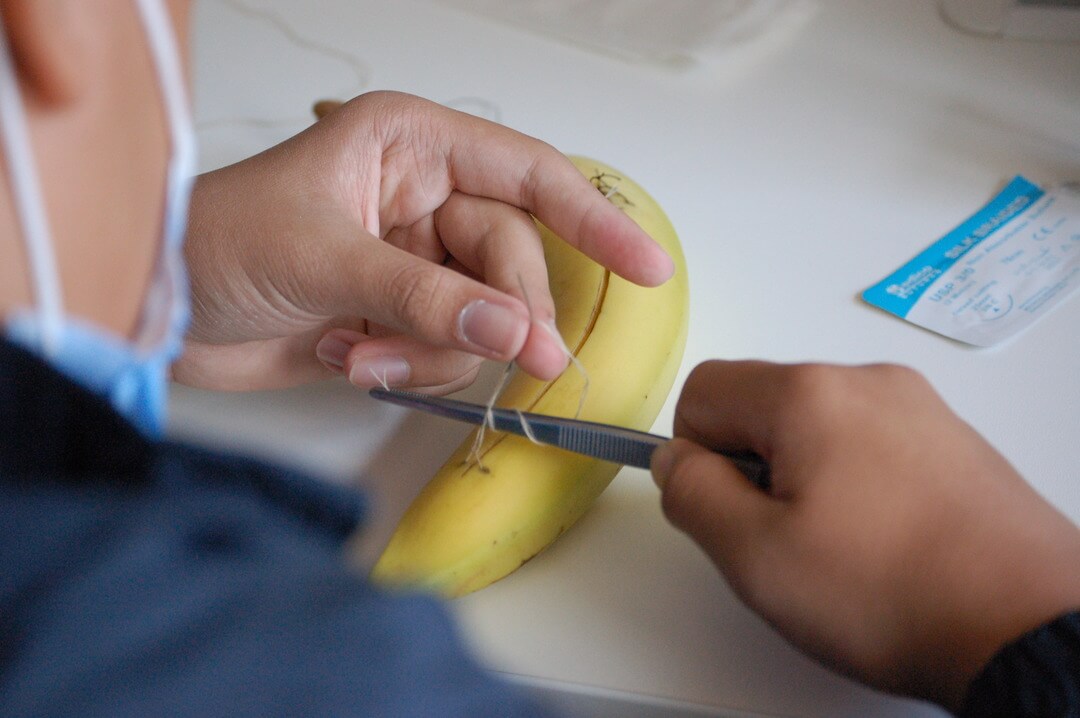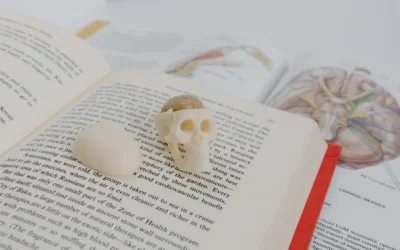A medicine degree in the UK typically lasts five years.
You might be wondering exactly what it is that takes up all that time. How is a medicine degree structured? What is intercalation anyway? We’ve put together the following article to answer all your questions.
How Long Is a Medicine Degree?
In the UK, if you begin your undergraduate degree at 18, you’ll need to complete five years of medical study not including intercalation (more on this below). This is two years longer than a standard UK undergraduate degree and for good reason.
What to Expect in Medical School
The actual structure of your medical degree will mostly depend on whether you’re taking a traditional course or an integrated course. We’ve broken down each of these below as it’s important to consider which option you’d prefer before you apply to medical school.
Traditional courses
A traditional course follows the way that medicine has been taught for centuries. You’ll have three years of pre-clinical study, which will take the form of lectures, seminars and tutorials or supervisions, just like students on any other undergraduate course. Then, during your fourth and fifth years, you’ll hit the wards and start applying your learning in a clinical environment instead of in the classroom.
Generally speaking, the Universities of Oxford and Cambridge are the only medical schools that still stick to an entirely traditional medical degree structure these days. If you want a purely traditional degree in the UK, they’re your best bet.
Please note, Oxford Scholastica has no official affiliation with the University of Oxford.
Integrated courses
Integrated courses take a more modern approach to medical study and it’s a structure that has been gradually adopted by the majority of UK medical schools over recent decades. It’s a broad term but it essentially means that students receive a mix of clinical learning and traditional classroom learning from the very beginning of the degree.
You’ll still have lectures and seminars, but they’ll be mixed in with clinical placements from your first year, which often take place weekly or biweekly. This setup allows you to become more comfortable on the wards and start developing your practical skills straight off the bat.
Integrated courses also tend to make use of Case Based Learning (CBL) and Problem Based Learning (PBL), where you work in small groups to answer questions about cases that are relevant to your current lecture topics. This will prepare you for discussing patients’ progress in frequent Multidisciplinary Team Meetings (MDTs) once you’re qualified.
Different Types of Entry for Medicine Degrees
The structure of a medicine degree varies depending on what type of entry you choose. Not everyone starts with a standard five year undergraduate medical degree straight away. There are lots of different ways into studying medicine, from starting an intercalated degree when you’re 18 to returning to medical school as a graduate later in life.
Foundation years
Some universities offer a foundation year. This is essentially an extra year of study that you complete before starting an undergraduate medicine course.
Typically, a foundation year provides a solid understanding of the scientific theory that underpins a standard medicine degree, so they’re usually aimed at prospective medics who didn’t complete traditional science A-levels (or an international equivalent).
Graduate entry
Graduate entry degrees allow you to join medical school after completing a different Bachelor’s degree. This is a great option for those who want to undertake a different degree before starting their medical career or decide they want to study medicine when they’re slightly older.
Graduate entry courses generally drop a year, so they only take four years of study and get you into practice that little bit faster.
Intercalation
The final important aspect of a medicine degree’s structure to consider is intercalation. It’s essentially an extra year-long programme within a medicine degree that lets students study another course for a year. At the end of the intercalated year, you’ll receive a Bachelor’s (or sometimes a Master’s) degree in the additional subject you chose to study.
Some universities require intercalation, while others offer it as an optional year. In both cases, it usually takes places between the third and fourth year of medical school, and will mean your total time studying before you graduate will be six years, rather than five.
Intercalation Courses
Some medical schools recommend studying a medicine-related subject for an intercalating year, while others allow students to choose freely.
It’s important to think about your reasons for choosing to intercalate before selecting a subject. Some students use intercalation to pursue a passion outside the medical curriculum, such as an arts subject.
Others focus on tangentially related areas, such as public health policy or the history of medicine. Meanwhile, students with a clear career goal often choose a directly related BSc. For example, future surgeons benefit from an intercalated degree in anatomy.

Which Structure Is Best for Me?
As you can see, there are lots of different ways to earn your medicine degree. The best approach depends on how learn best, whether you want to pursue other academic interests and if you have particular universities in mind.
Reading about other students’ experiences provides valuable insights to help you make an informed decision. Diego, a medicine graduate of the University of Cambridge, shares his experience in this ‘Day in the Life’ article.
A Bonus Interview Tip!
We’ll leave you with one final tip to help you succeed in your medical school interviews.
Universities are really proud of their curriculum and clearly outline course structure details on their website or in their prospectus. Think about how you can highlight aspects of a specific university’s course in your answer to the interview question: ‘Why do you want to go to this university?’
Download our free Ultimate Guide to Studying Medicine to find out more about applying to medical school.
Keen to try out studying medicine in the UK for yourself? Take a look at our Medicine summer school in Oxford and our online Medicine course to develop your clinical skills and strengthen your university application.

By Louis Davenport
Louis is a third year medical student studying at the University of Bristol. He is particularly interested in epidemiology, global health and medical history. Outside of medical school, he does his best to balance staying up to date on his reading and watch lists.





